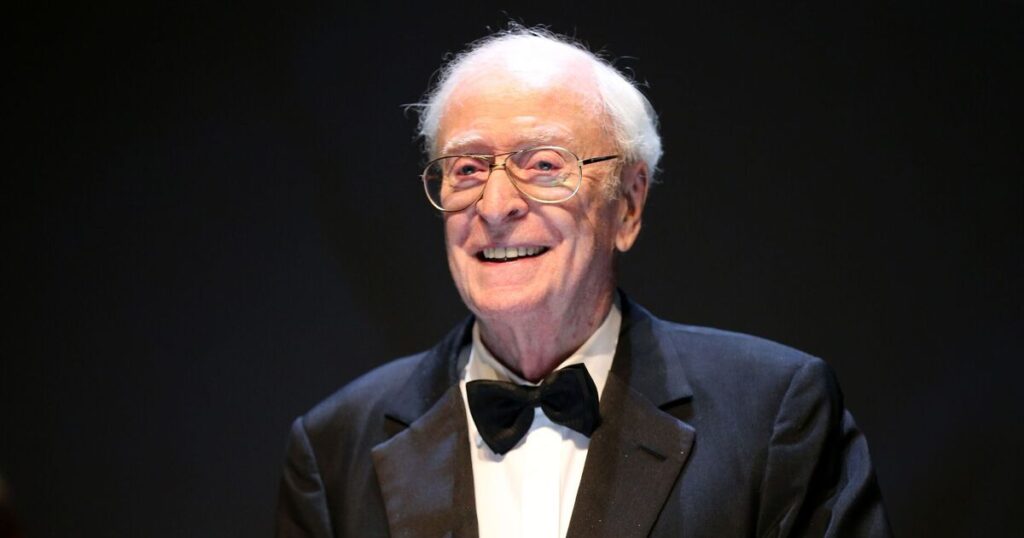
In a 2009 interview, Sir Michael Caine recalled the moment when he met his idol, and chose one of his songs as his favourite tune of all time.
That year, he appeared on BBC Radio 4’s Desert Island Discs – where guests get to choose their eight favourite songs, or the ones they would take with them if stranded on a desert island, as the name suggests – and chose tunes ranging from orchestral English patriotism to chill-out electronica.
By the end of the show, when asked by the presenter which one of the songs chosen would be his ultimate favourite, the two-time Oscar winner named one 1969 anthem.
Frank Sinatra’s ‘My Way’, famously adapted from the original French composition Comme d’habitude, came into Caine’s life in an unusual way – not through Sinatra, at first, but through the original French version, sung by Claude François.
“I was in Paris, many years earlier,” Caine explained. “And I was friends with a singer called Claude François. He recorded this song called ‘Comme d’habitude’”.
Years passed, and one day Caine was watching a performance by Sinatra and heard something familiar.
“Sinatra starts singing, and I’m sitting there thinking, ‘I know this song.’ And [composer] Paul Anka, who’s a friend of mine, was there with us. I said, ‘Have I heard this song before?’ And he said, ‘Yes. It was a French song.’ I said, ‘Claude François?’ And he said, ‘Yes.’”
Anka had taken the melody and rewritten it with new lyrics, tailored for Sinatra, and ended up creating one of the most iconic songs of the twentieth century.
Caine’s connection to Sinatra ran deeper than admiration from afar. Their paths crossed in the mid-1960s when Caine was just beginning to break into Hollywood.
“Shirley MacLaine was a big star and she had the right to choose her own leading man,” he said. “She saw The Ipcress File. She brought me to Hollywood for the first time and gave a party to introduce me to everyone.”
Caine was still unknown to American audiences then, but the party’s guest list, he recalled, was full of old Hollywood icons: “The first person to come in was Gloria Swanson. She was shorter than you think – a tiny little bit, about five feet tall. And the second person to come in was Frank Sinatra.”
Caine recalled the moment with reverence. “They didn’t come for me. They all came for Shirley. But I met my idol – Frank Sinatra.”
The other seven tracks Caine selected painted a more varied picture of his musical identity: He opened with ‘Viva La Vida’ by Coldplay, saying he’d “always been a big disco fan”.
“And I love Coldplay. This is a sort of bit of a disco one for me — but I know it’s not disco, it’s much better than that,” he added.
The second track, ‘One Day Like This’ by Elbow, came from a more recent discovery: “I was watching Glastonbury last year, as you do when you’re an old guy. And on they came. And I thought, who the hell is this?”
Elgar’s Nimrod from the Enigma Variations came next, in what he described as “a moment of patriotic pride”: “The next is not very romantic. This is me as a very patriotic Englishman. I’m very English, very patriotic about the whole country.”
Then came “two chill records” that he’d choose to play: ‘No Ordinary Morning by Chicane’, and ‘Swollen’ by Bent.
He moved on to ‘Move Closer’ by Phyllis Nelson – “A very romantic track”, and finally ‘Happy Xmas (War Is Over)’ by John Lennon and the Plastic Ono Band.
“I knew and liked John very much,” Caine said. “We were both at the Cannes Film Festival, drinking a little too much, and so I got to sort of know him like that there. He always introduced himself as John Lemon.”
“There is a little bracket after [the song’s title], because it’s the other line – War is Over. Unfortunately, it isn’t. But we all wish it was.”
 Latest World Breaking News Online News Portal
Latest World Breaking News Online News Portal






